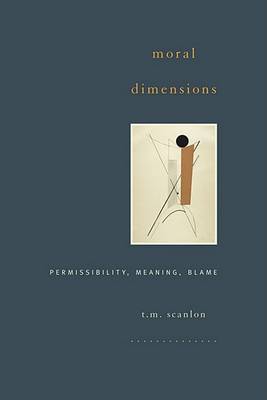In a clear and elegant style, T. M. Scanlon reframes current philosophical debates as he explores the moral permissibility of an action. Permissibility may seem to depend on the agent's reasons for performing an action. For example, there seems to be an important moral difference between tactical bombing and a campaign by terrorists - even if the same number of noncombatants are killed - and this difference may seem to lie in the agents' respective aims. However, Scanlon argues that the apparent dependence of permissibility on the agent's reasons in such cases is merely a failure to distinguish between two kinds of moral assessment: assessment of the permissibility of an action and assessment of the way an agent decided what to do.Distinguishing between these two forms of assessment leads Scanlon to an important distinction between the permissibility of an action and its meaning: the significance for others of the agent's willingness to act in this way. An action's meaning depends on the agent's reasons for performing it in a way that its permissibility does not. Blame, he argues, is a response to the meaning of an action rather than its permissibility.
This analysis leads to a novel account of the conditions of moral responsibility and to important conclusions about the ethics of blame.
- ISBN10 0674031784
- ISBN13 9780674031784
- Publish Date 1 September 2008 (first published 1 January 2008)
- Publish Status Out of Print
- Out of Print 11 August 2011
- Publish Country US
- Publisher Harvard University Press
- Imprint The Belknap Press
- Format Hardcover
- Pages 264
- Language English
